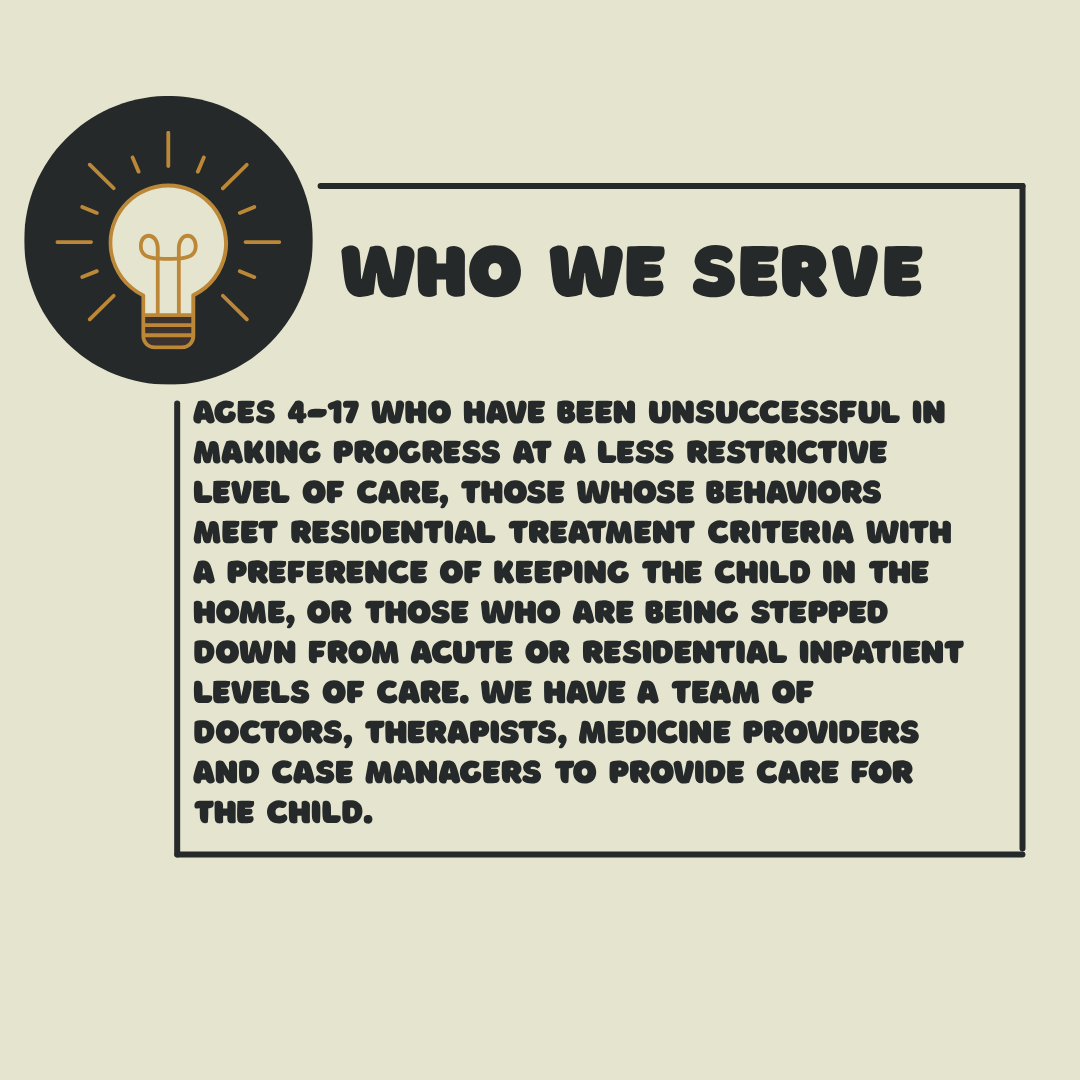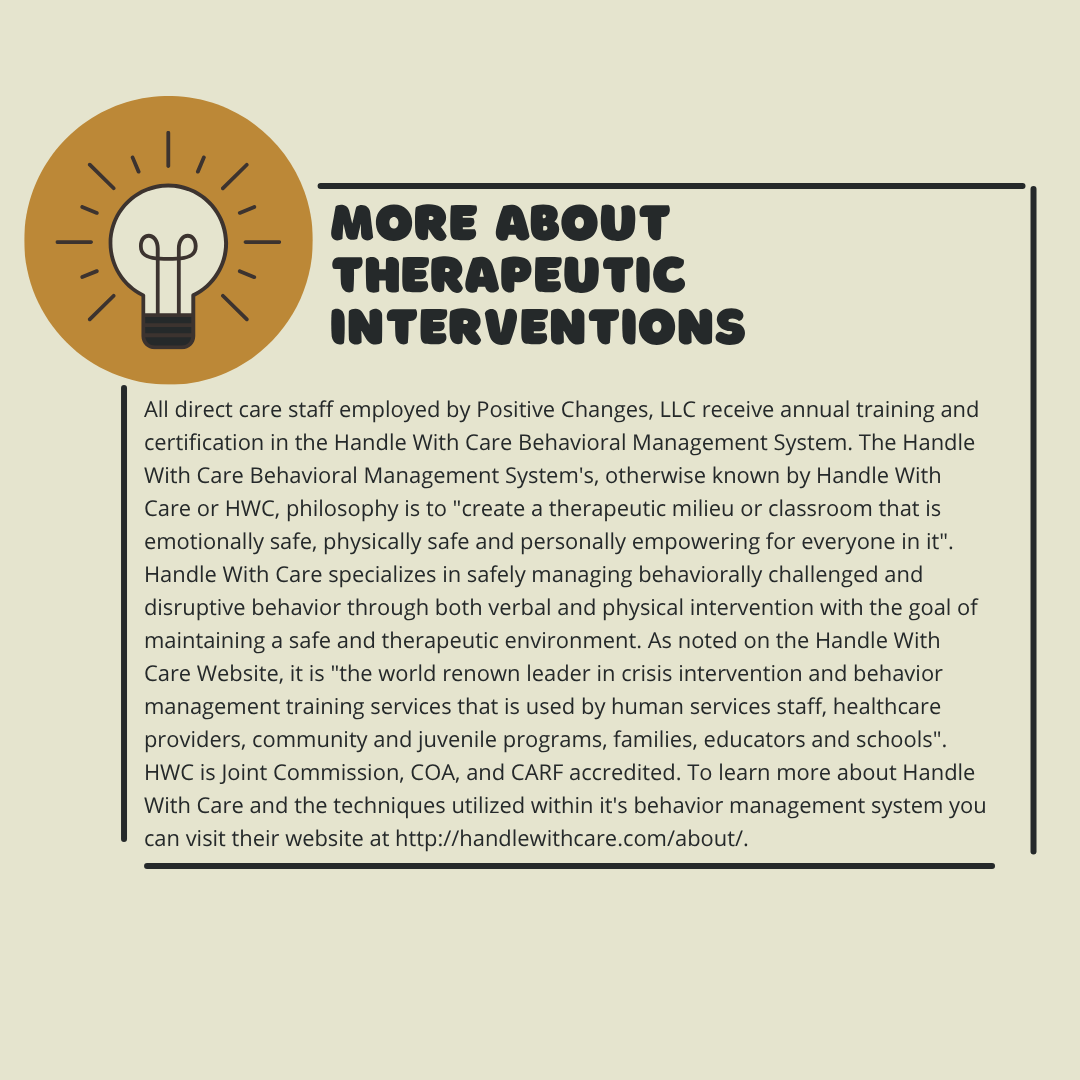|
Transforming lives, One Positive Change at a Time
|
SERVICES
|
All of our Positive Changes locations provide day long treatment services
to youth Positive Changes is committed to the provision of exceptional psychological services which promote change, growth, and enrichment opportunities to help our children and families reach their highest potential. |








